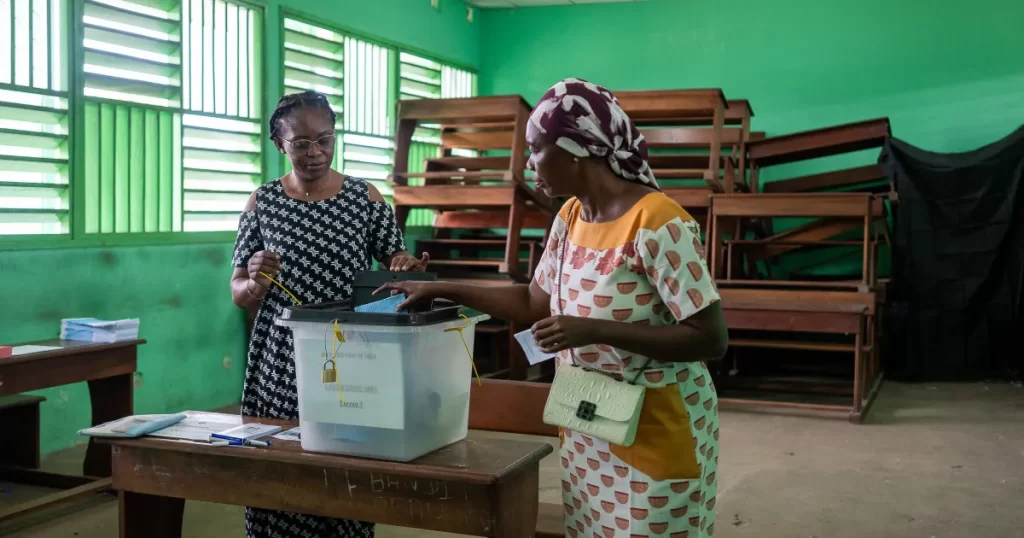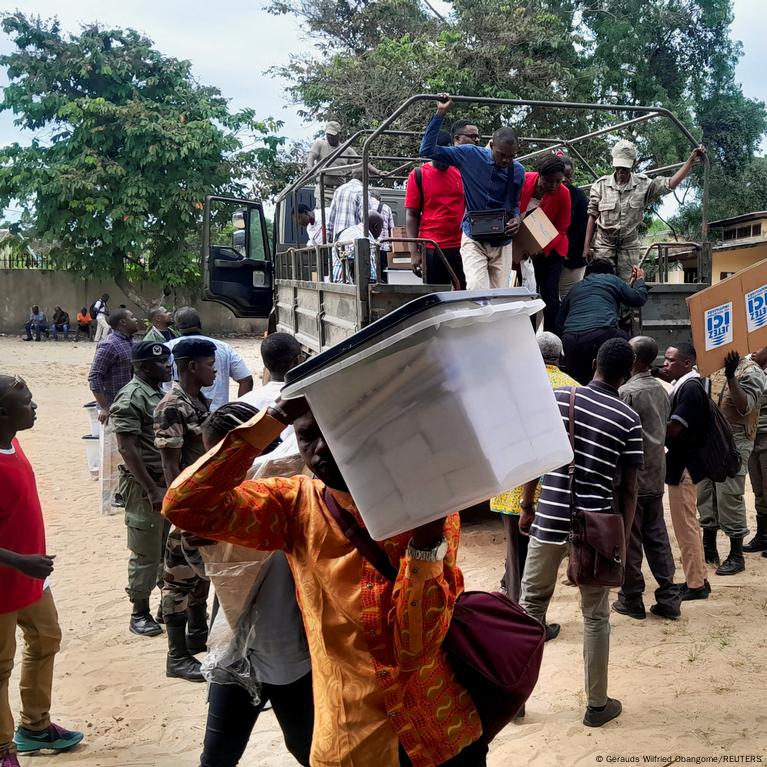Gabonese voters went to the polls Saturday to decide on a new constitution that would limit presidential powers, a crucial step toward promised democratic reforms following last year’s military coup, though observers warn the ruling junta may use the process to entrench its authority.

The proposed constitution would implement two seven-year term limits for presidents, eliminate the prime minister position, and officially recognize French as the nation’s working language. The referendum marks the first major political reform since military officers overthrew the Bongo dynasty that had ruled Gabon since 1967.
Interim President General Brice Oligui Nguema, who led the August coup, praised the referendum’s transparency after casting his vote in the capital. “This is something that I note, and it’s positive. A huge step for the transition,” he said.
The military takeover, the eighth coup in West and Central Africa since 2020, ended the 14-year rule of Ali Bongo, who had succeeded his father Omar’s 42-year reign. Western powers and regional organizations have pressed the new military authorities to establish clear timelines for returning to civilian rule.
While the junta has proposed presidential elections for summer 2025, analysts express concerns about the democratic integrity of the transition. Rukmini Sanyal of the Economist Intelligence Unit warned that despite some checks on power, the new constitution grants significant authority to the presidency.

“There remains a high risk that the electoral process will be manipulated to preserve army-led rule, given the junta’s entrenched control over the state’s electoral, judicial and legislative bodies,” Sanyal wrote before the vote.
Notably, while transitional leaders are generally barred from running for president, the proposed constitution makes an exception for Nguema, raising questions about the military’s long-term intentions.
In Libreville, the capital, pro-referendum posters dominated public spaces as voting proceeded slowly in the morning before picking up later in the day. “I came to vote for the ballot of my choice for the future of my children and my grandchildren, great-grandchildren,” said voter Nziengui Emilienne at a polling station.
The referendum represents a critical moment in Gabon’s political evolution, testing whether the military’s promises of democratic transition will materialize or whether the country risks joining other African nations where military leaders have maintained power through nominally democratic processes.



